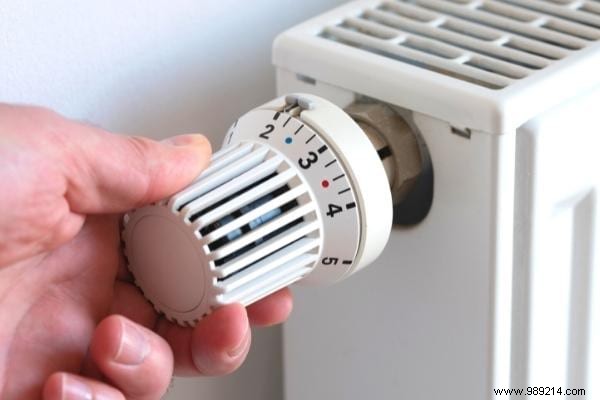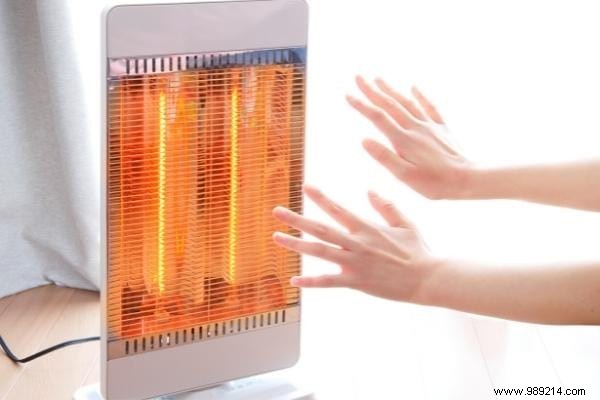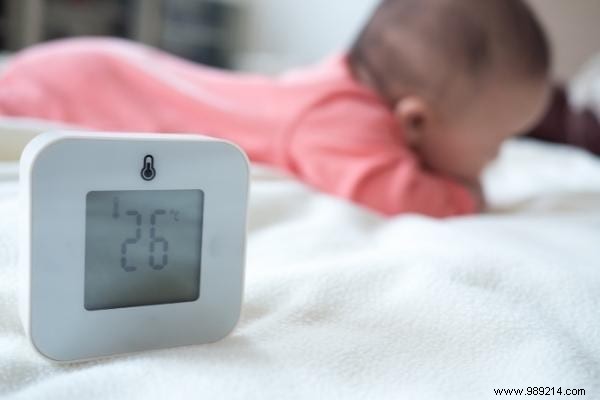
Here I answer a question that you have probably been asking yourself for a long time at the subject of heating.
Is it more economical to leave it on all day...
...or turn it on and off when we leave for work?
Because depending on the method chosen, the price of your electricity bill is not at all the same.
It can even get very salty if you don't heat it the right way!
For my part, I tested the 2 formulas and I now know which one costs me the least...
So find out whether it is more economical to leave the heating on continuously or whether to turn it off and on again. Watch:


Whether or not to leave the heater on is hotly debated.
On the one hand, you have those who think that leaving the heating on low all day is economical.
Since the temperature is maintained, the heating consumes less energy according to them.
And on the other, you have those who think you should turn it on only when you're at home.
That is, turn it off when you leave for work and turn it back on when you get home.
In this case, the heating works to reach the desired temperature, but is not on all the time.
But then, who is right?
Well, this question has been answered by specialists in the sector.
The idea that it is cheaper to leave the heating on low all day is a myth.
In any case, it is not an absolute truth or a generality.
In fact, what you have to understand is that a certain amount of heat is constantly escaping from your home.
If you leave the heating on all day, well you lose a certain amount of heat all day.
And this quantity therefore varies depending on whether your house is well insulated or not.
So that's what makes the difference! The insulation of the house.
And that's true whether you're heated with electricity, gas or oil.

It is therefore the insulation of your home that makes the difference with respect to the heating mode.
If your house is very well insulated , then you can leave the heater on all the time.
Because it maintains the desired temperature without too much difficulty since there is little heat loss.
If, on the other hand, your house is not well insulated, the opposite should be done.
It is then more profitable to heat the house when you need it.
Because otherwise the heat generated is lost quite quickly through the walls.
If you're trying to maintain a temperature all the time, your heater has to work really hard.
Knowing that the majority of people are away during the day, this should not be a problem.
So some will tell me that with this method, it's not very comfortable.
By the time the temperature reaches the desired degrees, we have time to catch a cold!
Well no; it's all a question of organization in truth...
Most of those who opt for this type of heating turn on the heating early in the morning for a few hours.
So the house is nice and cozy when you wake up.
Then we start again at the end of the afternoon until we go to bed.

There is a simple test you can do to find out if you should leave the heating on all the time or only when you are at home.
Over a period of 4 weeks, test during the first 2 weeks the heating method on all the time.
Then, over the next 2 weeks, do a test by programming your thermostat at specific times.
To see the difference, you need to take readings on your meter.
At the beginning and end of the first 2 weeks.
And at the beginning and end of the 3rd and 4th week.
Warning; perform these tests when the temperatures are about the same.
Indeed, if a cold snap occurs suddenly, the result is logically distorted.
Me personally, I have an isolated house, but nothing more.
Well, know that heating it only when I'm there saves me money.
I went from a bill of €1,300/€1,400 a year to €1,040.
Worth a try, isn't it?

Now that you know the key to the problem is insulation, how do you know if your home is well insulated?
So the best way to find out, is to carry out a heat balance with a professional.
But before that, a few hints can already put you on the way.
Already, have you properly insulated your attic ?
This question is fundamental, because generally the heat evaporates from the top of the house.
It is therefore essential to insulate this part of your home.
In addition, it is one of the cheapest and easiest insulation methods to perform.
Also ask yourself the question of whether your windows are real thermal sieves.
Double glazing stops the cold from entering from the outside while keeping the heat inside.
Wall insulation and floor insulation also clearly make the difference.
If you live in old or even very old housing, wall insulation is strongly recommended.
You will then have to carry out an interior or exterior insulation.
Buying a more efficient boiler can also help lower your bills.
Same if you don't have heating controls.
For example, if you don't have a thermostat, you risk overheating your home.
Finally, the thermostatic valves on your radiators can also regulate the temperature of the rooms.
They allow you to stop heating the rooms you are not using.

Now that you know what method to use to warm up, let's look at what temperature to do it at.
So of course, everyone has their own needs and feelings in terms of heating.
However, there are some very important recommendations to apply if you want to save money.
For example, we all tend to overheat the rooms in the house, especially the living room.
However, you should know that there is no need to overheat this room.
A temperature of 19 degrees is sufficient and perfectly comfortable.
Realize.
If you go from 22 to 19 degrees in this room, you save almost 20% on your bill!
And the same goes for the rooms.
Already, know that it is not good to sleep with too high a temperature in these rooms.
Studies even show that sleeping without heating is much better for your health.
Well, I'm not going to name all the rooms in the house one by one.
I put you this tip that gives you all the info for that.
But overall, a temperature between 17 and 19 degrees depending on the room in the house is sufficient.